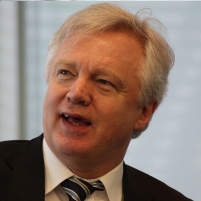British Politician Reveals Failed U.S. Plan to Wiretap All of Afghanistan before 9/11 Attacks
Thursday, March 29, 2012
 David Davis (photo: Robert Sharp, Wikipedia)
David Davis (photo: Robert Sharp, Wikipedia)
The U.S. intelligence community might have known ahead of time about al-Qaeda’s plan to attack the United States on September 11, 2001, had it managed to follow through in the 1990s on plans to eavesdrop on Afghanistan’s proposed new phone system.
According to David Davis, a Member of Parliament in the United Kingdom, former shadow home secretary and former chairman of the Conservative Party, officials during the Clinton administration had an inside business source in 1998 who was negotiating with the Taliban to install a communications network for the developing country.
The Federal Bureau of Investigation (FBI) and the National Security Agency planned to work with Telephone Systems International (TSI), the New Jersey-based company hired by the Taliban to install the phone system, so intelligence operatives could listen in on every call originating inside Afghanistan. According to Davis, who told his story publically in the House of Commons on Wednesday, the owner of TSI, Afghan-American Ehsan Bayat, was also an FBI informant.
But the phone spying never materialized.
First, President Bill Clinton imposed a trade embargo on Afghanistan in July 1999, which delayed the operation. Then, the Central Intelligence Agency (CIA) got wind of what the FBI was doing and embarked on a turf war in Washington, arguing that it should be snooping on the Afghan calls rather than the FBI. The CIA won, but then fell into internal bickering.
By the time the CIA sorted out its problems and won the right to proceed with the mission, giving the green light to Telephone Systems International to continue negotiations with the Afghan government, it was only days before 9/11, and a month later the U.S. attacked Afghanistan.
In 2002, litigation between Bayat and two British advisers, Stuart Bentham and Lord Michael Cecil, threatened to bring the story to light. In November 2003, Washington stepped in and sealed records relating to the case, citing national security concerns. The litigation shifted from the U.S. to the U.K. and was finally decided in Bayat’s favor in 2011.
-Noel Brinkerhoff, David Wallechinsky
To Learn More:
FBI And CIA 'Turf War' Scuppered Secret Plan That Could Have Thwarted 9/11, David Davis Claims (Huffington Post-UK)
US Acted To Conceal Evidence of Intelligence Failure Before 9/11 (by Ian Cobain, The Guardian)
David Davis’ Testimony (www.parliament.uk)
- Top Stories
- Unusual News
- Where is the Money Going?
- Controversies
- U.S. and the World
- Appointments and Resignations
- Latest News
- What If China Invaded the United States?
- Donald Trump Has a Mental Health Problem and It Has a Name
- Trump Goes on Renaming Frenzy
- Trump Deports JD Vance and His Wife
- Trump Offers to Return Alaska to Russia






Comments